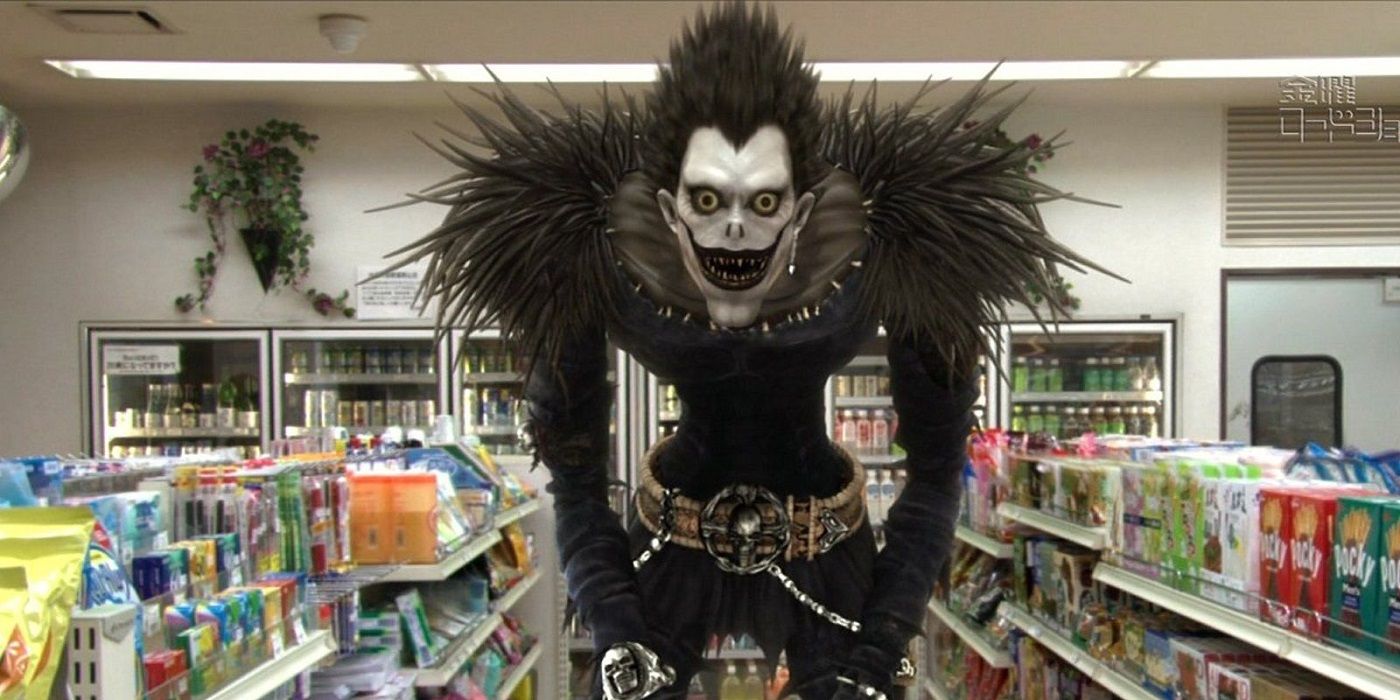Amid ongoing controversy, Death Note director Adam Wingard takes to Twitter to defend his choice to set the story in the U.S. The upcoming Netflix movie is an adaptation of the popular manga/anime of the same name, in which a Japanese schoolboy discovers a notebook that allows him to kill people by writing down their names. He is soon visited by the shinigami (reaper or death god) that dropped the book, and is hunted by a boy genius working for the police department, as he continues to strike down those he decides are deserving of death.
It's a dark and thrilling ride of a story, and fans have hoped for a solid feature film adaptation for a long time. The Netflix adaptation was initially met with excitement, but as news about this version of the manga was released, it's become a controversial subject. Directed by Adam Wingard, the film will be set in Seattle, rather than Tokyo, and the lead (Nat Wolff) is definitely not Japanese. Wingard's changes have been met with criticisms, particularly that the casting is whitewashing an Asian character. Now, the director has defended his choices, claiming his film is a new version of the original.
Wingard took to Twitter today to respond to a tweet that criticized the movie for not sticking to the original anime/manga. His first tweet read, "This is a whole new take on Death Note with many departures," a comment that was quickly pounced on by other Twitter users. Wingard also tweeted: "Criticisms at this point are based on assumptions," to which one user (@KylaraEris) responded with an accusation of erasing Japanese elements. Wingard replied once more, saying that there is no "conspiracy" to whitewash, and calling his movie a "fresh version."
There is no conspiracy to remove Japanese culture from Death Note. Its a fresh version of the story set in Seattle. Also see The Departed. https://t.co/ZezHsFSecC— Adam Wingard (@AdamWingard) June 6, 2017
Unsurprisingly, a Twitter storm ensued, with some defending the director, and others continuing to argue that the movie whitewashes the original subject matter. Wingard himself kept replying, and pointed out the various different races that live in Seattle, and telling fans to watch the movie when it comes out.
A. Thats not the point. It's a remake of Infernal Affairs set in Boston.
B. They do but there are also white, blacks, hispanic etc. https://t.co/RW6PvxdEsE— Adam Wingard (@AdamWingard) June 7, 2017
Some pointed out that there has already been a live-action version of Death Note with an Asian cast. This version of the manga was released in 2006, with a dubbed version released in both the U.S. and the UK.
if only there were a Japanese version that people could go see....— bob (@toonhound) June 7, 2017
The arguing over Wingard's tweet was certainly predictable, with whitewashing (especially of anime and Asian characters) a hot button topic in Hollywood right now. Ghost in the Shell ended up a major flop, and the whitewashing controversy surrounding it may well have played a part in that. Iron Fist, another Netflix project, has also been dogged by accusations of whitewashing or playing into white savior tropes.
Wingard's decision to double down on the casting choice at this point is a risky one - fans are increasingly unimpressed with the re-casting of Asian characters with white actors, but it would certainly be unusual for a director to criticize his own casting choices before a film's release. His comments are undoubtedly going to fan the flames on this particular issue, especially as they continue to simply repeat that it is a "new version," rather than addressing directly why an Asian-American actor couldn't have been chosen for the lead role. However, long-time fans who aren't concerned about the race of the actors, only the quality of the adaptation as a whole, are sure to brush this off as a Twitter storm in a teacup.
Next: Why Ghost in the Shell's Whitewashing Matters
Death Note premieres on Netflix on August 25th, 2017.
Source: Adam Wingard (Twitter)

